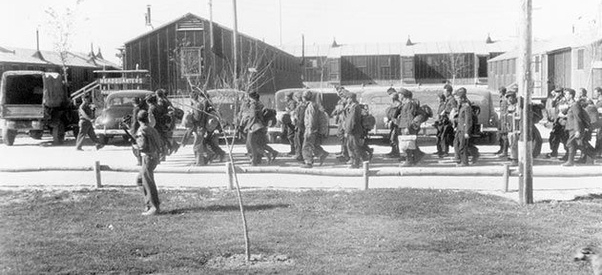

Were there WWII camp guards that treated their prisoners humanely?
Were there WWII camp guards that treated their prisoners humanely? While the overwhelming majority of guards in Nazi concentration camps and prisoner-of-war camps during World War II were involved in severe mistreatment, abuse, and murder of prisoners, there are some documented cases of individual guards who acted with a degree of humanity.
Personal Choices:
Some guards, often motivated by personal morals or a sense of compassion, reportedly showed kindness by providing extra food, allowing prisoners to rest, or offering basic comforts. However, these actions were typically isolated and did not change the overall oppressive environment.
Non-Nazi Camps:
In some cases, guards in camps run by other nations (such as the Soviet Union) might have treated prisoners differently, especially in the early stages of the conflict, though this varied widely.
Individual Stories:
There are stories of certain guards who later recounted their experiences with regret and acknowledged the suffering they witnessed. Some even took steps to help prisoners in small ways, but these cases were not representative of the systemic brutality of the camps.
Historical Context:
The overall structure and ideology of the Nazi regime were rooted in dehumanization and violence, making humane treatment an exception. Guards were trained and indoctrinated to view prisoners as less than human.
In summary, while there were a few instances of guards showing compassion, they were exceptions in a system designed for cruelty and oppression. The broader context of the Holocaust and wartime atrocities reveals a stark reality of widespread inhumanity.




